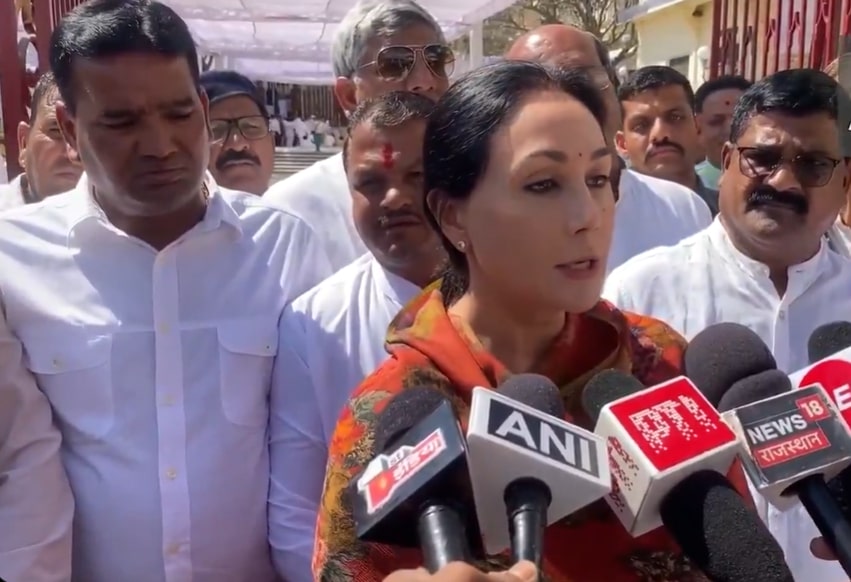Udaipur, Rajasthan – Rajasthan’s Deputy Chief Minister Diya Kumari has strongly criticized Samajwadi Party MP Ramji Lal Suman for his controversial statement in Parliament regarding historical figures Rana Sanga and Maharana Pratap. In an interview, Kumari called Suman’s remarks “wrong” and urged him to refrain from making such statements without proper understanding of history.
Suman’s comments, which have sparked a political uproar, were seen as an attack on the contributions of historical figures like Rana Sanga, who played a pivotal role in the history of Mewar and Rajasthan. Diya Kumari, a member of the ruling Bharatiya Janata Party (BJP), expressed her displeasure over the MP’s lack of historical knowledge. “That MP’s statement in the Parliament was wrong, and he should not have made such a statement. He has no knowledge of the history,” Kumari said.
The Deputy CM emphasized the significant role of Rana Sanga in Rajasthan’s history, particularly his contributions to the Mewar region. “Rana Sanga has done so much for Mewar and Rajasthan,” she stated, underlining the valor and sacrifices made by the Rajput king. Kumari also took a dig at the Opposition, accusing them of making baseless statements against revered historical figures like Maharana Pratap and Rana Sanga without conducting proper research. “The Opposition makes such statements against Maharana Pratap and Rana Sanga without proper research and knowledge,” she added.
Both Rana Sanga and Maharana Pratap are revered for their fierce battles and unwavering commitment to protecting their motherland, particularly against foreign invasions. Kumari stressed the importance of respecting such historical figures and the impact of their contributions on the legacy of Rajasthan. “They fought so many wars for the motherland. Making such shallow statements for such personalities is not right,” she concluded, calling on public figures to be more mindful and respectful when discussing history.
The controversy has sparked a debate over the portrayal of historical figures in contemporary politics. While some support Suman’s views, others, like Diya Kumari, argue that such statements undermine the dignity and legacy of the warriors who shaped the history of India, particularly the Rajput rulers of Rajasthan.
As the issue gains traction, it remains to be seen whether this political exchange will escalate further or lead to a broader conversation about the interpretation of history in modern-day politics.



